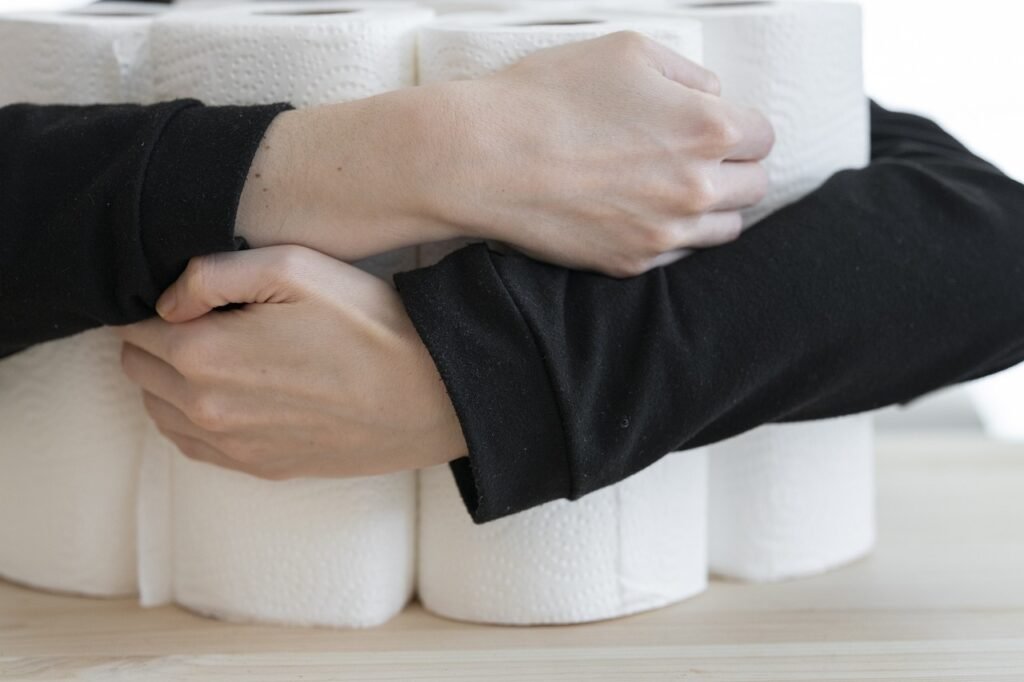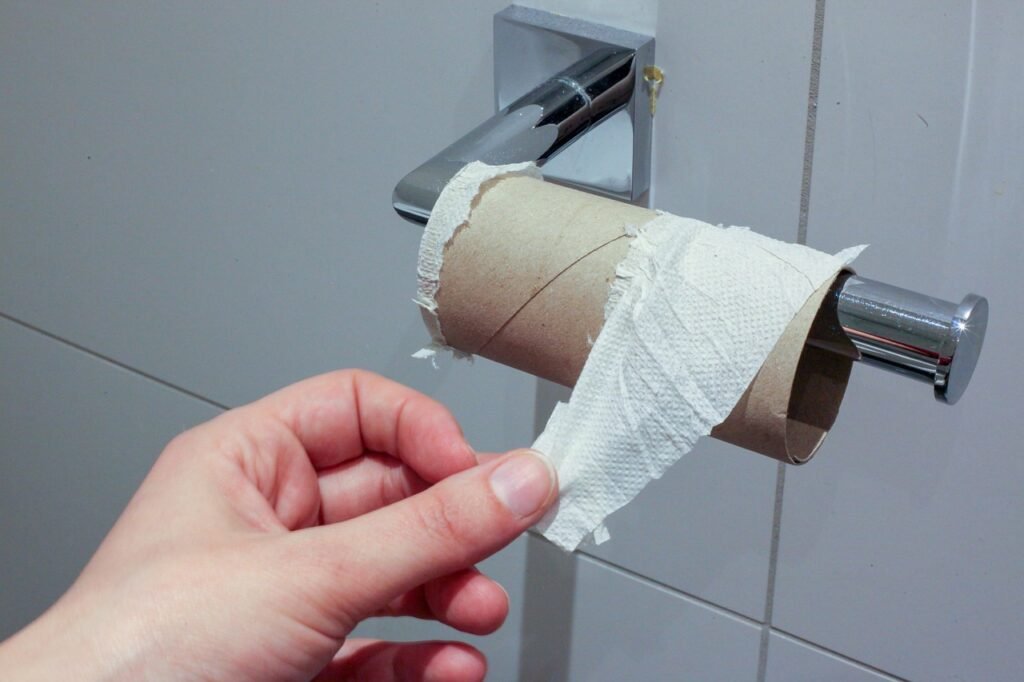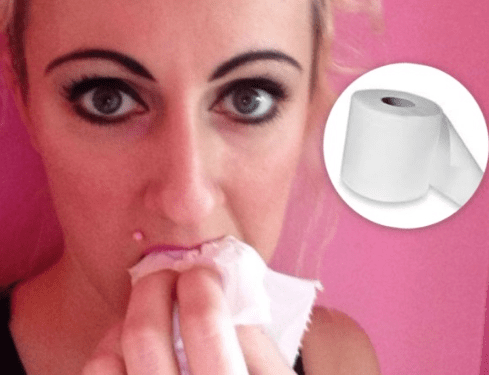In a world where food trends can often take an eccentric turn, it’s no longer surprising to come across unusual eating habits that boggle the mind. From kale smoothies to insect snacks, we’ve seen it all. But just when you thought you’ve heard it all, along comes the bizarre notion of consuming toilet paper. Yes, you read that right – toilet paper, the very thing you’re supposed to use for hygiene purposes in the bathroom. Intrigued by this seemingly absurd trend, I delved into the depths of this quirky topic to uncover the truth behind the question: Can eating toilet paper kill you? So, let’s roll with it (pun intended) and embark on this curious journey through the world of unconventional eating habits.
The Curious Trend of Eating Non-Food Items
Before we jump into the toilet paper feast, let’s first take a detour to explore the world of pica disorder. If you’ve never heard of it, you’re in for a fascinating yet slightly bewildering ride. Pica disorder is a condition where individuals develop an appetite for non-nutritive items like dirt, clay, chalk, and yes, even toilet paper. It’s like our taste buds decided to go on an adventurous trip to the unknown. While pica disorder is relatively rare, it gives us a glimpse into the intriguing ways our minds and bodies can interact.
Take the case of the 19th-century farmer Mary, who had an insatiable urge to consume soap. Or the tale of Joe, a modern-day computer programmer who developed a fondness for eating plastic bottle caps. These stories highlight the remarkable diversity of items people with pica disorder might choose to consume. From the unusual to the seemingly mundane, the human penchant for non-nutritive consumption can leave us scratching our heads.

Is Toilet Paper Safe for Consumption?
Now, let’s dive straight into the star of the show – toilet paper. Before we get all judgmental, it’s important to understand the composition of this everyday item. Typically made from wood pulp, water, and a dash of chemicals for softness and strength, toilet paper is processed into the thin sheets we’re familiar with. So, can you safely snack on a roll without raising eyebrows or risking your health?
According to medical professionals, ingesting small amounts of toilet paper is unlikely to cause any immediate harm. The primary ingredients are generally considered safe for consumption. You see, toilet paper is designed to be gentle on your delicate regions, so it’s not likely to wreak havoc on your insides in small quantities. But hold on, before you go munching on a roll, it’s crucial to remember that moderation is key. Consuming large quantities could potentially lead to complications, which brings us to our next chapter.
Potential Risks and Complications
First on the list of concerns is the dreaded choking hazard. While toilet paper might not seem like the prime suspect for a choking incident, consuming large pieces or not chewing it properly could lead to an unfortunate scenario. Imagine explaining to the ER doctor that you choked on toilet paper – talk about an awkward situation! It’s best to remember that when it comes to eating, anything that can’t be chewed and swallowed easily should probably stay off the menu.
Digestive issues are another potential pitfall. Toilet paper is designed to disintegrate when wet, which is fantastic for its intended purpose. However, in your digestive tract, it might not play along as nicely. Consuming excessive amounts might lead to blockages, discomfort, and a series of trips to the bathroom that you’d rather avoid. You might end up spending more quality time with your plumbing than you ever anticipated.
Let’s not forget about the chemicals and additives that can sometimes lurk in certain toilet paper brands. Some cheaper options might contain substances that, while safe for wiping, might not be so friendly when ingested. Reading labels and opting for quality brands can help mitigate this risk. After all, you wouldn’t want to add “toxic chemicals” to your dietary profile.

Unusual Diets and the Desire for Non-Nutritive Consumption
In a world where fad diets like keto and paleo seem to dominate, it’s not surprising that some individuals venture into uncharted territory when it comes to their dietary choices. The desire to stand out or embrace the avant-garde might drive people to experiment with unconventional eating practices – including consuming toilet paper. But beyond the surface, what makes us crave such non-nutritive items?
Psychological factors play a significant role. Stress, anxiety, and even certain nutritional deficiencies can trigger the desire to consume non-food items. It’s like our subconscious mind is searching for solace in the most unexpected corners of life. This phenomenon highlights the intricate connection between our mental well-being and the choices we make, even when it comes to what we eat.
Real-Life Cases and Stories
To truly grasp the impact of this peculiar trend, it’s time to turn our attention to real-life cases. The internet is replete with stories of people who’ve indulged in toilet paper munching. From YouTube confessionals to anonymous forum posts, the accounts are as diverse as they are perplexing.
Take the case of Sarah, a college student who admitted to secretly snacking on toilet paper during late-night study sessions. While she didn’t experience any immediate health issues, the discomfort she felt in her stomach afterward was enough to make her rethink her snack choices. Then there’s Mark, a young professional who found himself devouring bits of toilet paper as a stress-relief mechanism. His realization that there were healthier ways to cope with stress led him to seek professional help.
Upon analyzing these cases, a pattern emerges – most individuals who indulge in this unusual habit don’t experience immediate life-threatening consequences. However, their stories shed light on the potential discomfort, digestive issues, and, well, the sheer awkwardness of it all. These cases also highlight the broader context of non-food item consumption, showcasing that toilet paper isn’t alone in its journey from bathroom to taste bud.

How to Address Unusual Eating Habits
By now, you might be wondering what to do if you find yourself craving a snack that’s more suited for the restroom than the kitchen. Recognizing the signs of pica disorder is a crucial first step. If you or someone you know is regularly consuming non-food items, seeking professional help is imperative. Mental health professionals can provide the necessary guidance to understand and address the underlying causes of this behavior.
Promoting healthy eating habits and a balanced diet is another essential aspect. Sometimes, our cravings for unconventional items stem from nutritional deficiencies. Ensuring we’re nourishing our bodies with the right foods can curb these cravings and lead to overall better well-being. Additionally, finding alternative stress-relief mechanisms like exercise, meditation, or engaging hobbies can redirect the impulse to munch on unusual items.
Conclusion
In the grand tapestry of bizarre eating habits, the trend of consuming toilet paper stands out as one of the most puzzling. As we’ve explored the various facets of this curious phenomenon, it’s evident that while toilet paper might not be an immediate executioner, it certainly isn’t the most sensible snack choice either. The risks of choking, digestive issues, and potential exposure to harmful chemicals should be enough to discourage anyone from venturing down this path.
In the end, our health and well-being should be paramount. While experimenting with food can be fun, it’s important to draw the line at items designed for purposes other than consumption. So, the next time you’re tempted to take a bite of that roll of toilet paper, remember that there are plenty of tastier and safer options out there to satisfy your cravings – options that won’t leave you questioning your life choices as you reach for a glass of water to wash down your unconventional snack. After all, a life well-lived is one where each bite brings nourishment, not bewilderment.

